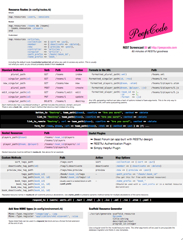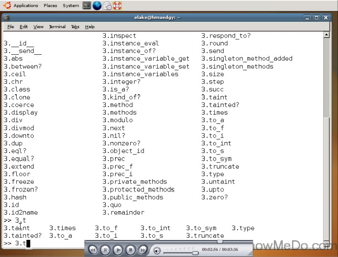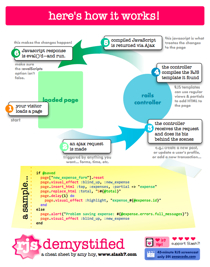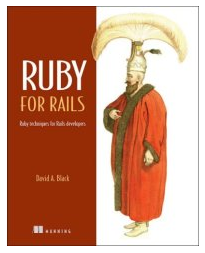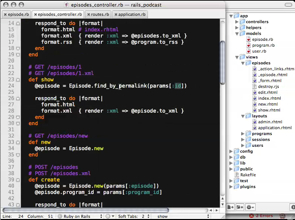
After watching Geoffrey Grosenbach’s latest episode of Peepcode, a pay-for screencast series showing you how to do cool stuff with Ruby on Rails, I can safely say Restful Rails is the best $9 you could spend on Rails knowledge right now. Almost 90 minutes of screencast bliss packed with info is a steal, especially since you’ll save so much time playing about.
It covers REST (Representational State Transfer), a concept, in Rails at least, where your models and data rule the roost. URLs are accessed with differing HTTP verbs depending on the action (GET to get data, POST to create data, etc) and data can be returned in different formats (HTML, XML, sometimes RSS) on the fly. Read More

